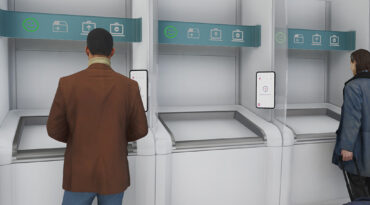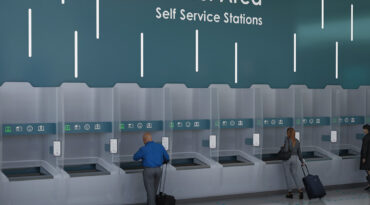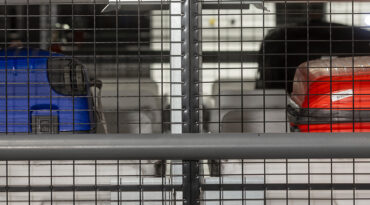But many have overlooked how a critical contributor to their Environmental, Social and Governance (ESG) profile might be in operation under their very noses: the airport’s baggage handling system (BHS).
Specifically, modern BHS such as the Independent Carrier Systems (ICS) are doing far more than just speeding up the transport of baggage.
The ICS supports core SDG ambitions concerning energy use, employment quality, infrastructure resilience and climate action – and this article will assess how it can help airports to meet five of the UN goals.
To fully comprehend the surprising role your ICS plays in your airport’s ESG strategy, download our e-book ‘How modern automated ICS baggage handling systems align with ESG Goals’.
SDG 7: Affordable & Clean Energy
ICS technology is driving new baggage handling system standards for energy efficiency.
Through innovations in tote and cart-based systems, airports using ICS technology are able to move baggage using far less power than conventional conveyor belts – often making significant savings – while also improving operational flow.
This enables the airport to reduce the energy usage of its baggage handling at scale, along with its operational costs.
SDG 8: Decent Work & Economic Growth
ICS technology reshapes the airport handling workplace by reducing physical strain and opening doors for upskilling and career development.
It helps to create safer, smarter, and more rewarding jobs on the ground.
Our e-book outlines how ICS automation is transforming job roles across several airports, with a focus on safety and employee satisfaction.
So if you’re looking to align your HR ambitions with your sustainability goals, download our e-book and find out how your ICS can play an important role.
SDG 9: Industry, Innovation & Infrastructure
Your modular, intelligent, and resilient ICS represents a new kind of infrastructure investment.
In a world where uptime and adaptability are critical, your ICS can help airports to future-proof their operations while complying with global aviation standards.
In this way, your ICS technology helps airports design for tomorrow’s passenger demands while meeting today’s compliance targets.
SDG 12: Responsible Consumption & Production
From reducing energy wastage to minimising the use of materials and wear-and-tear, your ICS supports more responsible consumption within airport operations as efficiency strategies are embedded in the baggage handling system.
Our e-book explores how smart system design and the use of materials contribute to long-term efficiency gains, making recommendations for how you can maximise their potential.








